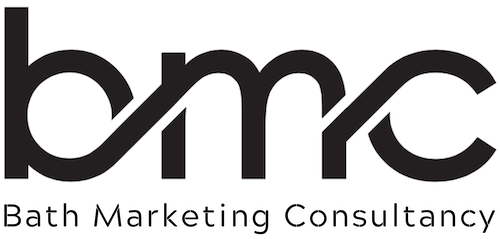These days, the business owner needs to consider a lot when creating their perfect marketing mix. For example, do they focus resources on traditional or digital marketing…or both? Each company is different so some would benefit more from one type of marketing than another. But, why are these two types of marketing considered separately? What’s the difference between digital marketing and traditional marketing, and how does it change your marketing mix?
Digital
Digital marketing is any type of marketing using digital means. It includes channels like social media, websites, search engine marketing, online advertising and more.
Traditional
Traditional marketing usually includes all forms of tangible and physical marketing (business cards, posters, brochures, advertisements, posters, word of mouth, radio commercials, and more. Television ads are also predominantly considered part of traditional marketing.
Can I Compare Digital and Traditional Marketing?
You can’t directly compare one to the other or say that one is better than the other. Instead, you have to look at some of the individual aspects of each and how it could benefit your marketing.
For example, marketing generally needs to produce measurable results. While both types of marketing can provide data, digital marketing can provide those metrics in real time. This means you won’t have to wait for a whole month to find out a new ad isn’t working well, and you can make more instantaneous changes. A good example of this is Google AdWords.
Similarly no type of marketing is more effective than the other all of the time. But, you need to choose the right type of marketing for your demographics, business type, industry, etc. For example, businesses whose main customer base is aged above 30 years should probably not focus on social media marketing on platforms like Twitter, Instagram, or Snapchat. These are not ideal for reaching their target audience, so they just wouldn’t be as effective as traditional marketing.
You should never assume one type of marketing will work for every business. There are some marketing elements that are useful for most businesses, such as websites, but they can’t be universally proclaimed as the best way to do marketing! After all, just having a website isn’t enough. It needs to set out your stall correctly, have a good customer experience and, above all, be findable in Google.
In general, digital marketing campaigns are less expensive than traditional marketing. This doesn’t necessarily yield a higher ROI, though the low cost is usually attractive to businesses. For example email marketing to a subscriber database or advertising on Facebook or the Google networks. Just like anything else, digital marketing must be done right in order to give an ROI.
In terms of who your marketing efforts can reach, digital marketing has a clear advantage. Not only can you reach a wide range of people, but you can also choose to reach out to a very narrow group of carefully selected people. For example, you can put your ads only in front of select groups of people with specific browsing or purchasing habits. This is especially true with targeted ads on Facebook selling a product or service direct to a customer.
Traditional marketing still holds a slight advantage when it comes to local marketing. It is simpler to get the word out about your business locally using some fairly inexpensive forms of traditional marketing. Digital marketing can be targeted to a local area, but it must be done precisely to be effective, whereas traditional marketing like advertising in local magazines can easily be locally focused.
Traditional marketing campaigns that use tangible materials have the distinct advantage of longevity over digital marketing campaigns. People will sometimes hold onto business cards, flyers, and other physical items for days, months, or even years. It is difficult for people to keep hold of any digital marketing products, even though things like emails can be saved indefinitely in an inbox.
Hard copies can be particularly effective at keeping a business in the view of the customer. It can also lead to greater brand recall benefits long after the campaign is over. Digital marketing ends the moment the campaign is over, and it is immensely difficult to keep in the view of the customer afterward.
Traditional marketing struggles to create engagement and interaction with customers. It is generally a way to broadcast information, but it often fails to bring in new information about your customers. This is strength of digital marketing, as it’s much easier to create a direct interaction with people at any time.
Both digital and traditional marketing have their strengths and weaknesses, but elements of both should be considered for the strongest marketing mix. You shouldn’t simply ignore one altogether and embrace the other, as this may not lead to the best marketing strategy for your business. Focus on what will work best for your business specifically without trying too hard to be everything to everyone.



